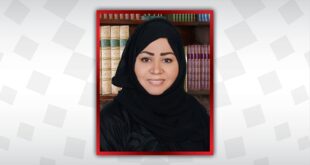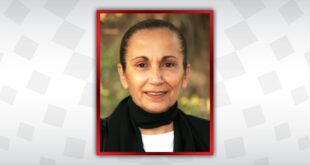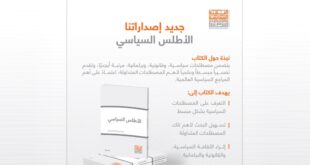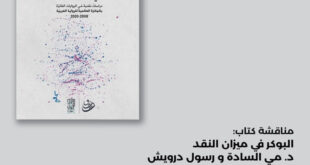Manama, June 26, (Bahrain Now), written by Kashmeera Sambamurthy:
WHEN WAR STRIKES, HERITAGE BLEEDS
Striding across the destroyed tomb of Prophet Jonah Nabi Younes in the eastern side of Mosul, while piecing the destroyed remains of the tomb together, the 47-year-old geologist, Faisal Jeber, pledged to weave the heritage site in a style, that would stand proud as the symbol of long-lasting beauty that tourists would flock to catch a glimpse of. With heat scorching at its peak, as the 27-year-old representative of Afghan Ministry, Hakim Safa, sells tickets at the site of Bamiyan Buddhas in Afghanistan, the question, ‘Will the Afghan heritage sites ever be free from extremist targets?’ weaves a tense look on his face, while glancing at the largest Buddha, Salsal (the feminine version), and Shamama, 56 and 38 meters high respectively, that bear marks of sabotage by the extremists.
When the war strikes, it is the heritage sites that shed blood. As proud citizens of our country, the rich culture that shines in the form of heritage sites swells our chest when tourists in large numbers gather to study more about the rich culture and heritage that a country brandishes proudly. Shifting the attention to war-torn countries, with special attention focused on Iraq, Afghanistan, Syria, and Yemen, though remains from the damage caused by the war adorn their roads, it would be a statement of disbelief that Iraq was the land of greenery, before war erased every trace of its beauty. Syria, that housed vast edifice of white stone set above the green slopes and represented the beauty of Syria, today stands in shambles due to the bombing that wrecked the whole castle. Extremism, whose effect is visible in the form of rubbles and pieces in countries they have firmly cemented their position into, it is a known fact that their ideologies have been at loggerheads with the government’s which has resulted in mass destruction of not just humanity, but the heritage sites, which gives a feel of ‘Damaged beyond repair’ to the onlookers.
HERITAGE SITES OF WAR-TORN COUNTRIES: WHEN WILL I STOP BLEEDING?
Sustainable Development, that highlights the meeting of human development goals without depleting the natural resources, today, the preservation of cultural heritage sites serves as a mission for UNESCO where their presence contributes to the cultural and socio-economic well-being of the nation. With the interference of politics, extremists and other negative factors being intense in gaining the control of what they term as ‘Power’, it is the culture that shed tears over the repeated blows it is served with. 24th June 2018, that witnessed site managers from 30 countries grace the World Heritage Committee 2018, saw varied discussions, opinions and concerns addressed about preserving their most valuable treasure. Empathizing the pain, the heritage sites moan when they bleed due to war, the President of the Board of Directors of Petra National Trust and the UNESCO Goodwill Ambassador, Princess Dana Firas of Jordan says, “It is such a pity to witness such mass destruction as, it is not just a country that witnesses heavy loss, but the memory of people, where they fail to have pleasant moments to treasure that they shared with their beloved heritage. What is creating anguish, is the ideology of extremists, who are keen on erasing every bit of a country’s glory and want to fill those gaps with their own narrative to get the attention of being the most ‘Powerful.’ Preservation of heritage sites has its own narratives that spills beans on its history and diversity that reflects the beauty that one should cherish on, and it is extremely important to protect them from harm and danger.”
With a large number of people gathering at the heritage sites, keeping a check on the minute to the minute event becomes difficult not just for site managers, but also for the government where the planned move of radicals becomes a tedious process for understanding. Reflecting the lack of mechanism on the part of the governments, the Princess of Jordan reveals the risk management measures UNESCO is taking to revive the dead, especially in conflict areas, where the discussions need to be extensive and lengthy. Highlighting the intellectuals of the Forum who have assembled from different countries, she comments, “Since preservation of their heritage is the foremost in the minds of everyone, the assembled have a unique role to play which directly and indirectly would join the damaged pieces together and keep negativity at bay. With the help of proper risk management measures, things are positive that it will be sorted out.”
MOSUL, IRAQ: I WANT TO SHINE AGAIN
Culture and heritage of a country that has existed for nearly thousand years, they come to life and spark delight by making themselves accessible to its admirers and onlookers and people who desire of studying about it from scratch. When preservation, protection, and safeguarding need to be given importance, it is the spreading of awareness or education that encourages local men, to preserve their ‘Mother.’ Sighing deeply that the destruction of certain heritage sites was irreversible, the Princess spilled beans on the steps UNESCO would take for reconstructing Mosul in Iraq. She highlights, “There are various lessons we have learned by viewing the destroyed sites of war-torn countries. The construction mechanism is very complex, that needs continuous assistance and support. Some destroyed sites require rebuilding, some rehabilitative assistance, and some become a memory. There is a huge program UNESCO has planned for Mosul that is going to stretch for many years, which is being supported by a big coalition. The United Arab Emirates and many others are supporting it. After all, water reaches the brim of the pot, drop by drop.” Citing the example of Bamiyan Buddhas in Afghanistan, she expressed pity over the fact that it could never be reconstructed, but since technology made life easier, through technological preservation, tourists and natives could cherish and capture memories of how they looked. Hopeful that the initiative would reap positive results, the UNESCO Goodwill Ambassador expects that this step creates an enabling environment for Iraqis where they will prevail in an ambiance of safety, integrity and everlasting love for their motherland.
Since, UNESCO took charge of the situation of Mosul immediately after destruction, the enormous damage caused due to the war required the support from masses, as rebuilding is not a small matter. Commenting on the risk management plans the Government of Iraq should take, she says, “Risk management plans are plans, and it is a hope that you don’t have to test your plans. Since Iraq is a war-torn country, preservation of heritage sites is quite risky for the protector as well as the site. So, the responsibility lies on the part of the government to take up steps to preserve their culture that is being ebbed by the continuous war. One thing that needs to be understood here is, UNESCO can neither force any government to agree to their rules and regulations nor can it dictate to them how a country should be preserved. If the Government, UNESCO, and international organizations join hands, a proper plan can be put in place that will ensure that the damaged heritage sites breathe life.”
HERITAGE SITES: IS POLITICAL INTERFERENCE A NECESSITY?
Fear. This always looms, even when things are going smooth, as we think it to be. When positive steps change the course of a damaged entity, if external forces spill negativity and turn the tables unfavorably, reactions are bound to be overwhelmed. Commenting about the political interference that could likely spoil the efforts of UNESCO towards reviving the damaged heritage sites, the Princess states, “Politics always gets in the way, and since we have international conventions and laws to fall back on that minimize the effect of politics on the decisions of UNESCO, it is nothing short of delight. Since Politics and external interferences cannot be stopped, at least we can be assured of the guidance from the international conventions we are sure to receive for the noble cause we have treaded onto. We also have civil society organizations that are always supporting the scope of preserving the sites, and they are powerful enough to intervene in case of any unjust interference.”
Sighing that the steps initiated cannot change much in a year, what is bound to bring enormous development is spreading awareness and start processes for preserving the heritage sites that will wrap a coat of education around the minds of people who will themselves step out and take charge of their fading glory. “I am a very positive person by nature, and since heritage sites are the pride of a country, I dream of seeing a new world in a span of five years where people are seen engaging in lively discussions and lavishing unsurmountable love on their cultural heritage sites. I would like to see this in Iraq. I would like to witness this in Afghanistan and all the other parts of the country, because the world experiences peace, if their heritage sites are at peace,” signs off the UNESCO Goodwill Ambassador on a high note.
 البحرين الآن مكان لتروي فيه قصتك
البحرين الآن مكان لتروي فيه قصتك




